
IPPF works to ensure that every woman and girl has the human right to choose to be pregnant or not and we will continue to supply and support safe and legal abortion services and care. We are committed to reducing the number of deaths of women and girls who are forced to turn to unsafe abortion methods. Make Abortion Safe. Make Abortion Legal. For all Women and Girls. Everywhere.
Articles by Abortion Care
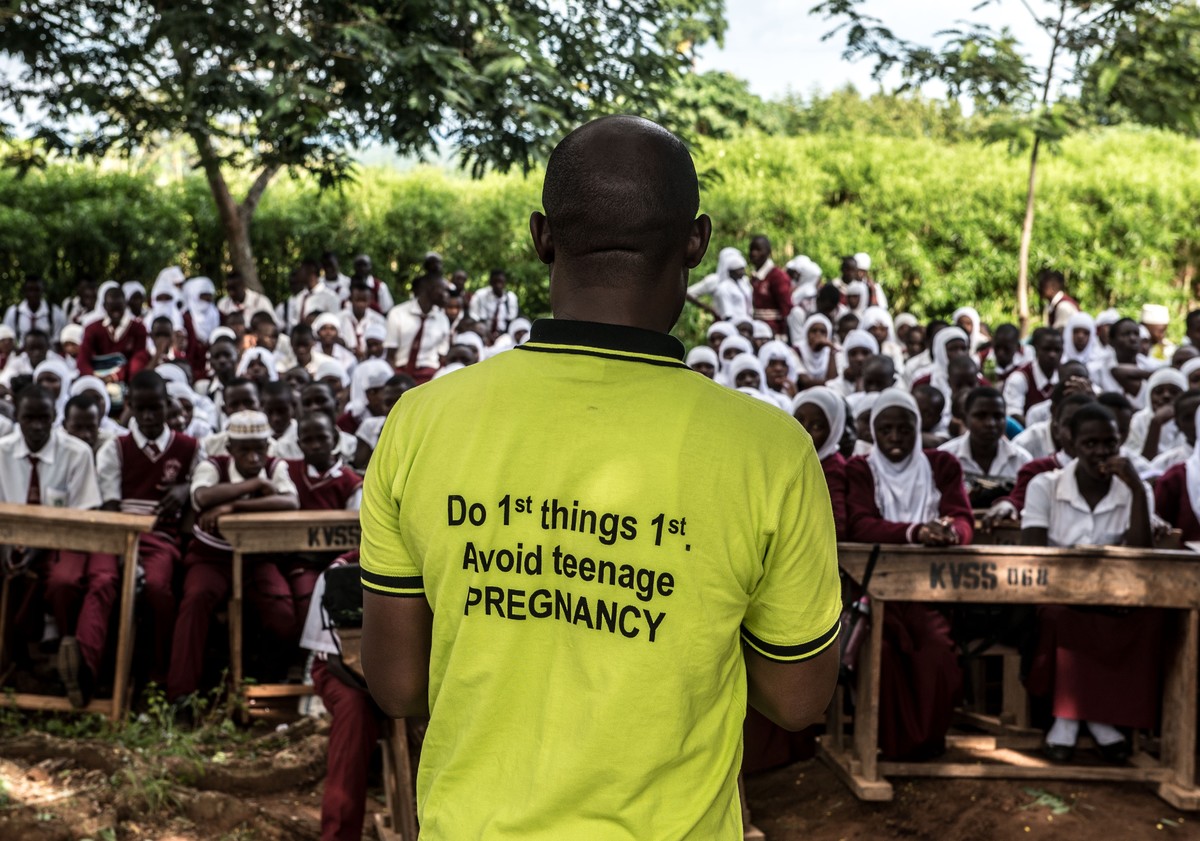
Tackling taboos about abortion
The Safe Abortion Action Fund (SAAF) which is hosted by IPPF was set up in 2006 in order to support grass-roots organisations to increase access to safe abortion. One such organisation which received support under the last round of funding is called Volunteers for Development Association Uganda (VODA). Teachers and community volunteers provide support for young people in schools. They are critical in reshaping the social norms and stigma surrounding teen pregnancies. For many young girls, an unwanted pregnancy can limit their education and significantly restrict their life options. In Uganda, teachers are now helping to provide counselling for girls on contraception and safe abortion. Prior to VODA working with schools to provide teachers with training, the rate of deaths from unsafe abortion was significantly high. This was even the case in primary schools. Now the prevalence of unwanted pregnancies has dropped and girls are more aware of their sexual and reproductive health. I’m Deborah. I’m 27-years-old and I'm a teacher as well as being a community volunteer with VODA Uganda. There is a problem with unsafe abortion and teenage pregnancies in this area. Young girls have been getting pregnant and some of them have been dropping out of school. Some have even died because of unsafe abortions. When VODA came in, they taught us about teenage pregnancies and unsafe abortion. So we came in to teach young people in the villages so that they can be aware of these issues. Many girls secretly use injectable contraceptives after being told to do so by their parents. When these parents realise that their daughters are sexually active, they fear that they could get pregnant before they complete school. They do it secretly because they fear stigma. They do it that way to avoid rumours that may circulate if they know that one’s daughter was taken for family planning while she is still at school. Many people in our community think that a teenager who is on contraceptives is spoilt. When I had just come to this area, incidents of unsafe abortion were high. But when I began working here and the girls came to know about me, I began counselling them about safe sex, contraceptives and condoms. I told them that if you think you cannot have protected sex, then you need to use contraceptives. But we also warned them against sexually transmitted infections. Using contraception has reduced the number of girls engaging in unsafe abortion. There are different local methods used to abort. Some of them would get complications that needed medical attention after trying these methods. Some would also secretly try to go to health centres after the abortion had gone wrongly or they had even nearly died. Now some of those that have unwanted pregnancies do approach me and I counsel them. In the past, if one talked about abortion or unwanted pregnancies, I would harshly judge her saying that she wanted it. But having become a volunteer with VODA I have learned sometimes the pregnancies are due to defilement or rape, so I came to understand that not all those that get pregnant want to have a child. Sometimes abortion is inevitable. For example, when a girl has been raped by her father, uncle, brothers or close relatives. How would a girl carry that baby? It is very important to educate young people about unsafe abortion, especially when they have reached that stage when they can get pregnant. That will help them to prevent having unwanted pregnancies and also to avoid unsafe abortion. It is important to give young girls contraceptives because some will have premarital sex. So such girls must have contraceptives if they are to avoid getting pregnant. I am Mily and I am 38-years-old. I am a volunteer for VODA Uganda and a teacher at a primary school in Kasawo. I have been teaching here for eight years. Before VODA was here, there were a lot of school dropouts from girls. They were getting unwanted pregnancies whereby they were forced to leave school. There was no one to counsel them. They were using local medicines for unsafe abortion. But when VODA came in they started to advise about unsafe abortion. We are working together with doctors and nurses from various hospitals so girls could get good care. VODA workers approached us and explained how it could help our children to stay in school. Then we had a workshop and our head teacher selected who would manage this. Before VODA came in unsafe abortion was rampant. Many of the girls were dying. Here at this school we had a girl in P4 - we were not even expecting that girl could be pregnant. Unfortunately, we heard about it when the girl was already dead. She was trying to have an unsafe abortion. Before VODA came, there was no sexuality education or counselling to do with STIs. That is why our children were dying because they feared to tell their parents. We thought that pregnant girls should leave school without further assistance. But as a volunteer, I thank VODA because now I know that that girls can be helped and they can continue with their studies. I am Frida and I'm 18-years-old. I am a peer counsellor at school and have counselled many girls about unsafe abortion. I came to know about VODA on a careers day at school and by attending training workshops on unsafe abortion. At our school, I’m very well-known as a youth counsellor. I help other girls who are sexually active with unwanted pregnancies. The training I received from VODA has given me self-confidence. Before, I couldn’t stand in public. But now I can stand in the presence of even one thousand people and I can talk. I’m not shy anymore. The problems are that girls can't access services like post-abortion care and family planning, like the pill. Girls are poor. Some services need money yet some girls don’t have money. They are getting pregnant because they have less information about unprotected sex and they are sexually active. To help them there needs to be places where they can find such services. From my training with VODA I now want to be a social worker so that I can work with people. I have realised that I can handle people well. Stories Read more stories about the amazing success of SAAF in Uganda
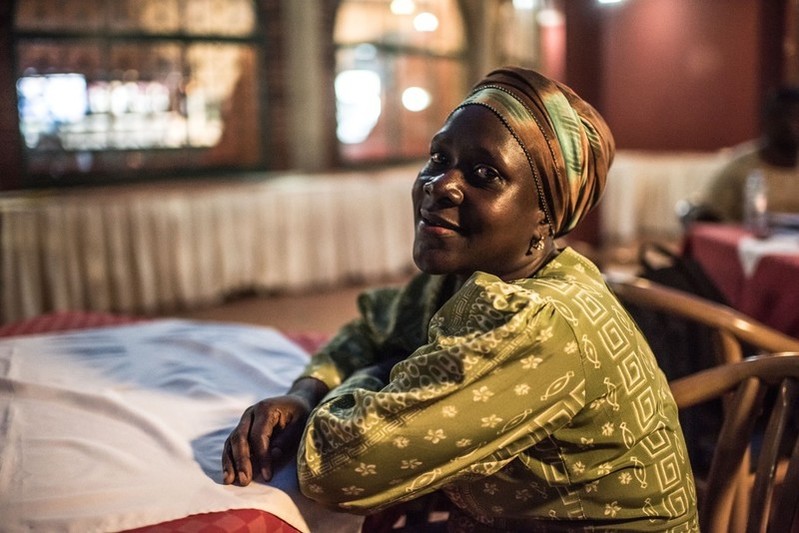
Brighter future for former sex worker and her daughter
The Safe Abortion Action Fund (SAAF) which is hosted by IPPF was set up in 2006 in order to support grass-roots organisations to increase access to safe abortion. One such organisation which received support under the last round of funding is called Lady Mermaid's Bureau. My name is Joan and I am 35. I was a sex worker for five years but now I have a fridge and I sell fruits and juice. When the people from Lady Mermaid's Bureau (LMB) met us, they told us to come and make crafts, which I'd never done before. Then Ali from the LMB told me to get a small fridge to start off. I’m making juice now. Now business is fine and I get money for my daughter. She is at university. Her father was not helpful so I had to get money to look after myself and my daughter. Sex workers go through a lot of difficulties. People don’t like you. Sometimes they chase you. Some catch you by force (rape). The police are not good. They chase us and others force us to have sex with them. They don’t give you money. They have sex for nothing. They are not good at all. I kept myself safe from pregnancy while working as a sex worker. I went to the clinic, I got the pills. Now I’m on injections. It has worked very well for me, they are good. When you go to the clinic, they tell you what to do but some people use unsafe abortion practices, like herbs and people are dying from doing that. My neighbour went through unsafe abortion with herbs. She died. My life has completely changed. It changed a lot and I don’t want to see anyone on the street. The street is not good. There are many girls on the street but they are not in a good condition. Ali (a programme officer at LMB) is very good friend. He is like a mother. He told me 'let’s go and buy the refrigerator'. It was 300 shillings (approximately $85). He gave me counselling and helped me to get off of the streets. Stories Read more stories about the amazing success of SAAF in Uganda
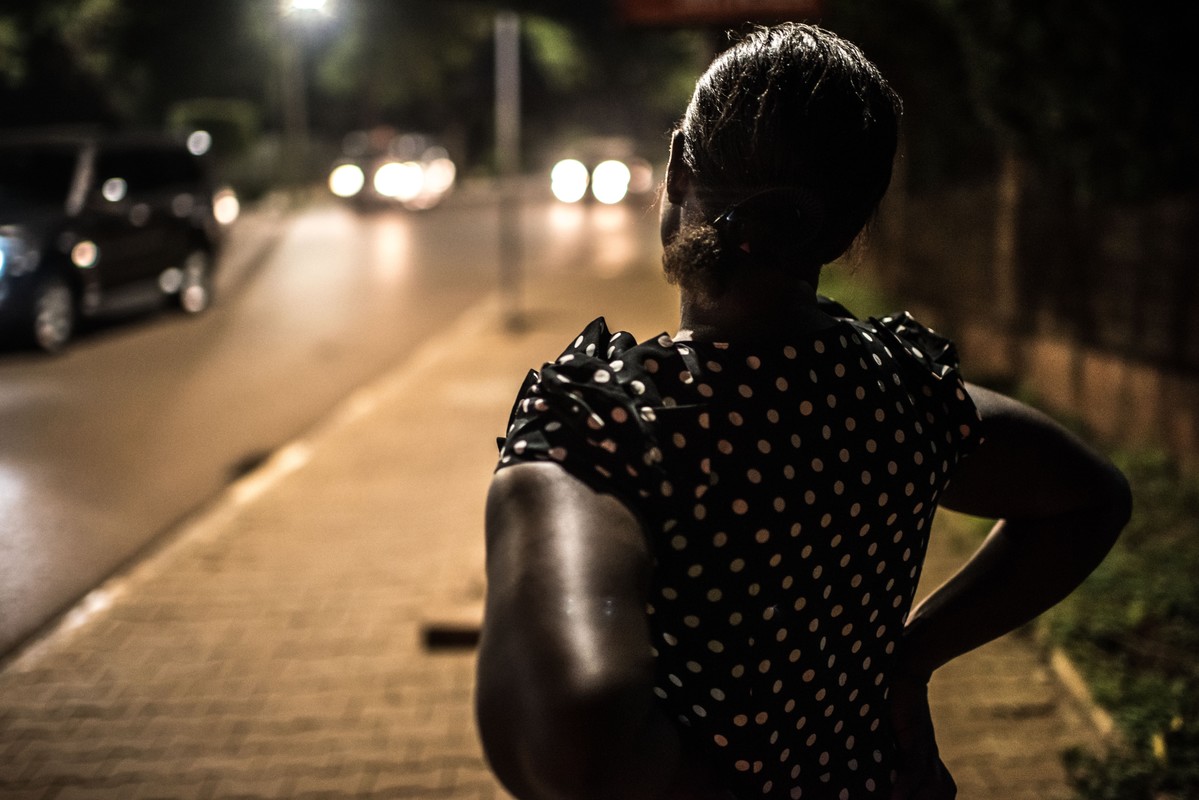
Helping jailed sex workers to be treated with dignity
The Safe Abortion Action Fund (SAAF) which is hosted by IPPF was set up in 2006 in order to support grass-roots organisations to increase access to safe abortion. One such organisation which received support under the last round of funding is called Lady Mermaid's Bureau. I’m called Debora and I’m 20-years-old. This is my fourth year as a sex worker. From it I earn some living. I get some money to pay rent, I have a six-year-old kid. I pay for his school fees because the dad abandoned me. Now I am earning and living as an individual. Sometimes you can go to the street and you don’t get any clients. So the next day you have to move on with life. So apart from sex work I wash people's clothes to get some money. However it is also not enough. I began this job after I had lost my parents.Then I had gone to my brother’s place but his wife didn't like me so my brother chased me away. I got a man; I stayed with him for some time. But when I got pregnant, he just ran away from me. And since then, I don’t know where he is and I don’t have any of his contacts. So I found life hard. That is why I decided to come, after a friend of mine briefed me about sex working. It is not really easy to be a sex worker because it is illegal and there are some harsh conditions. You don’t fit in to society because others see you as someone who can be neglected. And also another problem, these guys or the clients…. after you negotiate the payments he just beats you or runs away. You cannot report him anywhere because sex work is illegal here. And they arrest us. I have been arrested four times. The police abuse us and at times they also take advantage of us. I remember one time, he arrested me, then reaching there, he said if you want me to release you, then you also have to give me sex. I had to because I had no option by then. Lady Mermaid’s Bureau has helped us a lot because they get us some lawyers to get us out of jail. I will never forget that moment because they were taking us to prison not even to the police station. They brought us some doctors who taught us how we can prevent STIs, they gave us free condoms, they have also helped us with safe abortions after rape. Unsafe abortion is too much. I remember one time I got pregnant but I couldn’t have it because I already have a child I’m taking care of and my earning is not much. So I decided to just abort locally with some herbs that you can get. I tried it, actually I was going to die. They didn’t work. I was totally disturbed and I was rushed to the hospital. I was bleeding a lot. Safe abortion is so good, I wish they can sensitise everyone in our society even if you are not a sex worker. You can get pregnant when it is not the right time. But safe abortion is so safe just like the name sounds. The biggest challenge for women who do sex work is the law because we do it illegally. Everyone has her own way of getting the clients. Others have our numbers. If not you can come on the street. To be a sex worker is so hard. It is so hard. We just pray that one day they hear us because we didn’t want to do it but it is also a job and you get some money of course. Lady Mermaid’s has helped us because they really comfort us. You just go there anytime you have a problem. If you need condoms they give you them, if you need advice then counsellors can help you. If it wasn’t there, we would have no freedom of speech. Society will abandon you. You cannot go anywhere and say that you feel free that you are sex worker. There is no society you can be free with apart from Lady Mermaid's Bureau because they treat us like we are normal. Stories Read more stories about the amazing success of SAAF in Uganda
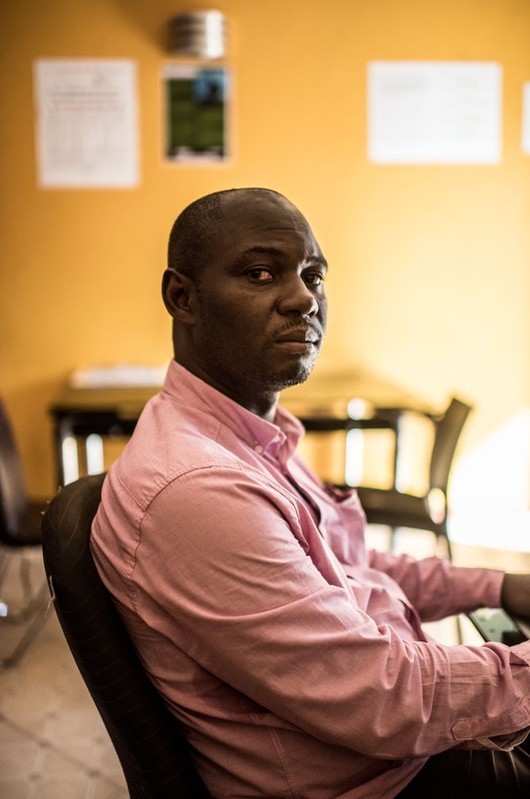
From garbage collector to sexual health counsellor
The Safe Abortion Action Fund (SAAF) which is hosted by IPPF was set up in 2006 in order to support grass-roots organisations to increase access to safe abortion. One such organisation which received support under the last round of funding is called Lady Mermaid's Bureau. My name is Ali. I have worked with Lady Mermaid’s Bureau (LMB) for eight years as a programme officer and I am also a consultant on safe abortion. LMB was founded by three sex workers in 2002. It is the oldest sex worker’s organisation in Eastern Africa. When it started, LMB arranged for sex workers to meet Parliament and expose all the problems that sex workers have to face. They originally thought the government would only take two years to legalise sex work. That was obviously not the case and as advisers we said it would take a lot of time talking about their sexual health and other problems. Before I became an adviser I was working with a garbage collection company. I was the night supervisor and I had a lot of friends who were sex workers. They would talk with me and tell me how they wanted a street where they would not be arrested. These were the workers who originally started Lady Mermaid’s Bureau. First it was for fellow sex workers to help them when they were arrested by the police. Then I came in to advise them in the set up and do what I could do to help them reach their goals. There were many problems. Talking about sex work was a taboo. When I became part of LMB nobody was talking about sex workers. The women’s movement was against sex workers. They thought it was exploitative to all women. So we had to engage most of them in our programmes until they came on board to realise sex workers rights. When the sex workers went to Parliament in 2004, that meeting acted to provide an amnesty to the women. Now they can take cases to the police. Previously, no sex worker would go to the police to report a client because she would just end up being arrested. Abortion among sex workers is still a very major issue that has to be looked at by the government. Many women are very vulnerable to becoming sex workers. They are poor, from slums and a lot of them are students. They face a lot of violence: rape, the police themselves use them (ask for sex) and then there are clients who rape the women. So there are a lot of incidences of violence that turn into unwanted pregnancies. Most of the women will resort to aborting if they face such violence because they don’t know the father of the child. If you go to a private clinic it can cost 120,000 to 250,000 Uganda shillings. Also, service providers will not tell the sex workers that there is a cheaper way of doing abortions. They try to escalate the costs. Sex workers aren't told about how they can take misoprostol from home and then they can follow up onto the clinic. So the service is perceived to be high although it could be cheaper to abort. We have seen women who have not been able to access safe abortion. We have a young lady here who tried to abort unsafely because it was too expensive for her to have a safe abortion. Again she was afraid that she would be arrested, she was afraid that nurses at the clinic would stigmatise her. So she tried to abort the local way but it didn’t work and now she has a child. Countrywide the problem is lack of contraceptives: you find that some women have aborted two or three times, and then there's the problem of not counselling on contraceptive use and the lack of contraceptives in private and public health institutions. In many cases the men don’t want to use the male condoms and there aren't many female condoms on the market and they are extremely expensive. It is really very important for women to have information about contraceptives and can access contraceptive methods. These days we have sex workers ranging from 14 year to 38 years. Most of these young girls have been trafficked from the villages. Some come from the villages where they are promised some work in the city and they end up into sex work. Some are refugees who have come from Congo, others have come from Rwanda and others have come from South Sudan. We also have sex workers who are students from the colleges. And then we have young ladies who have grown up in slum areas of Kawempe, Katanag in Makerere, Natete who have been orphaned and left to fend for their families. There are the older ladies who work on the streets to sell tomatoes. They give out their numbers to clients or men who can raise them on call. And another group of older women work from their homes in slum areas where pimps take customers to them. There are also some high-class sex workers from 20-32 years old. They work in posh shops in Kampala where they give out business cards. There are sex workers who have pimps that use social media like Facebook and badoo to expose the women. Men just call the pimp who will bring the sex worker. Getting contraceptives to girls under 14 is also a big issue which parliament needs to look at. Now a lot of young ladies find themselves in distress. Most of them come from the villages and most of them have lost parents. They enter into sex work from 14 and they find themselves becoming pregnant. Since contraceptives are restricted to these ages, it is increasing the problem rather than solving it. There is need for counselling on contraceptives at least from ages of 14 and then there is need for a contraceptive referral centre. Another issue is a lot of rumours that contraceptives damage the body of the women and that it changes the hormones, causing infertility. So these women in the end don’t talk about these problems when they visit health centres and the doctor will not follow up. The women end up concluding that every contraceptive is damaging to their bodies. This project started to have an impact in its second and the third year. Sex workers had learnt about safe services, and how to tell a health institution that they had had a miscarriage. The majority of the feedback has been positive. Abortion should be legalised. The legislators should learn about the stories and they can get a precise picture of the level of deaths caused by unsafe abortion. Stories Read more stories about the amazing success of SAAF in Uganda
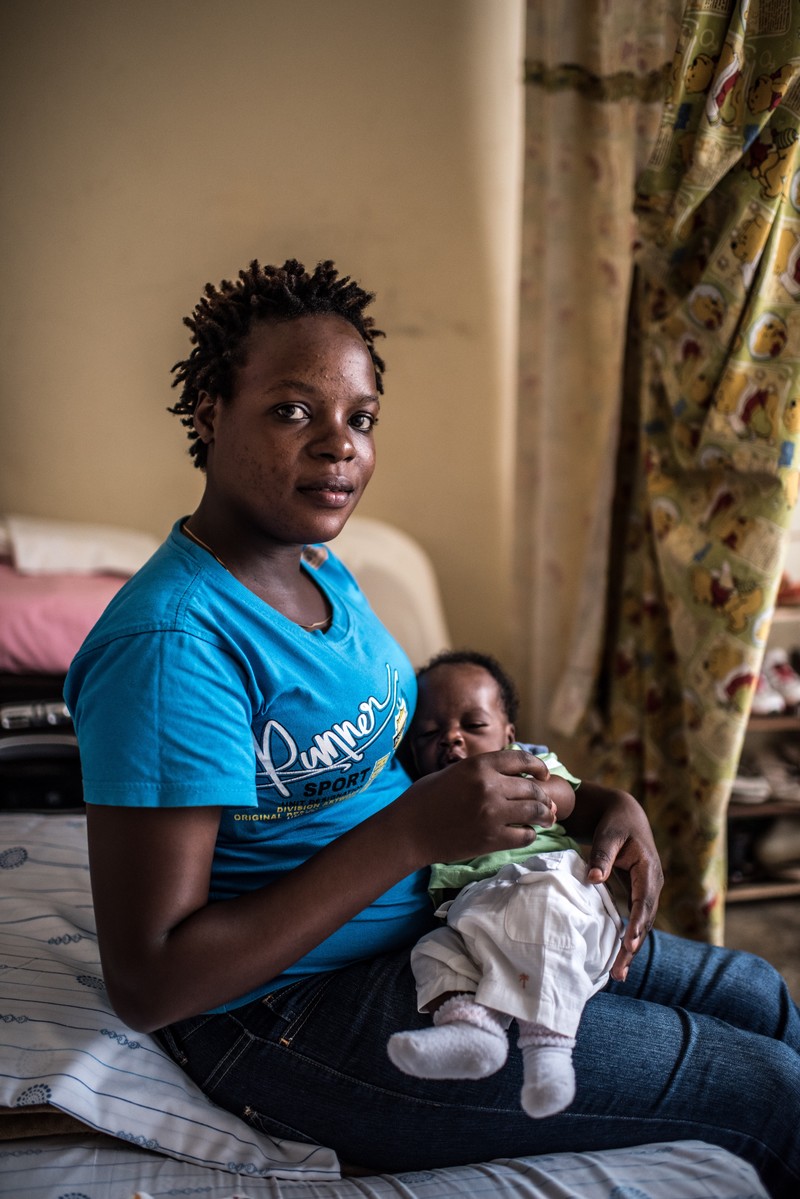
Life-changing post-abortion care for sex workers
The Safe Abortion Action Fund (SAAF) which is hosted by IPPF was set up in 2006 in order to support grass-roots organisations to increase access to safe abortion. One such organisation which received support under the last round of funding is called Lady Mermaid's Bureau. My name is Masitula. I’m a single mother of two sons and I'm a sex worker. I live in Nansana Wakiso district, it is near Kampala. Every evening I travel 10 kilometres to Natete, a Kampala city suburb where I am a sex worker. I got pregnant after a client refused to wear a condom. I attempted to abort using some unsafe abortion practices but I was unsuccessful. I now have a two-month old baby whose father I do not know. My eldest son is seven years, he is in primary school. The other one is two months. I became a sex worker after a friend advised me that this job can provide me with some income. My husband left me six years ago for another woman when my eldest was only one. He doesn’t give me a single penny for taking care of his son. I used to be a teacher but the income is little. So I have been a sex worker for six years. There are many problems for sex workers here. One is with the police. The police catch us, take our money and sometimes force us to have sex. The other problem is that those men who buy us, some of them don’t pay. They just use us and they don’t pay. It affects me because when you go to work and you don’t get any income, it is bad. They use you for free. And I don’t have anyone to take care of my kids. So sometimes I don’t work I just stay at home because no one will take care of my kids. I live only with my children. I don’t have anyone else. Sometimes I have to take my baby with me and if I get a job, then I give him to my friend until I finish. It is difficult with such a little baby but there is nothing I can do. I don’t even know the father. He just forced me. He said that he will not put on a condom. So that is why I tried to abort with herbs, but it didn't work.They caused me a lot of pain and I was about to die. I didn’t go for a safe abortion because with this government of ours, it is not easy to go to the hospital and tell them that I want to abort. You just go and tell them that you want medicine for ulcers. But Lady Mermaid's Bureau, supported by SAAF, has helped me and other sex workers. When you call them they come immediately. When you are sick they take you to hospital. In everything they are good. When I get some problems, I just go and tell them. They do what other people can’t do. It has changed my life because I now have a friend. They are my friends. I take them as part of my family because I don’t have any family. My father died, I don’t have a mother and my husband left me. They are my family now. Abortion should be legal and also sex work because it is a job. We don’t want to do it. It's just because we don’t have anything else and that is why we do it. So the government should also take us as human beings. No one treats us as human beings. And to prevent women from having unsafe abortions the government should provide people with jobs and factories to work in. So that they don't have to do sex work because it affects these girls, and some of them are like me. We don’t have jobs, you go and look for a job, you don’t find the job and you just find yourself doing this sex working job instead. Stories Read more stories about the amazing success of SAAF in Uganda
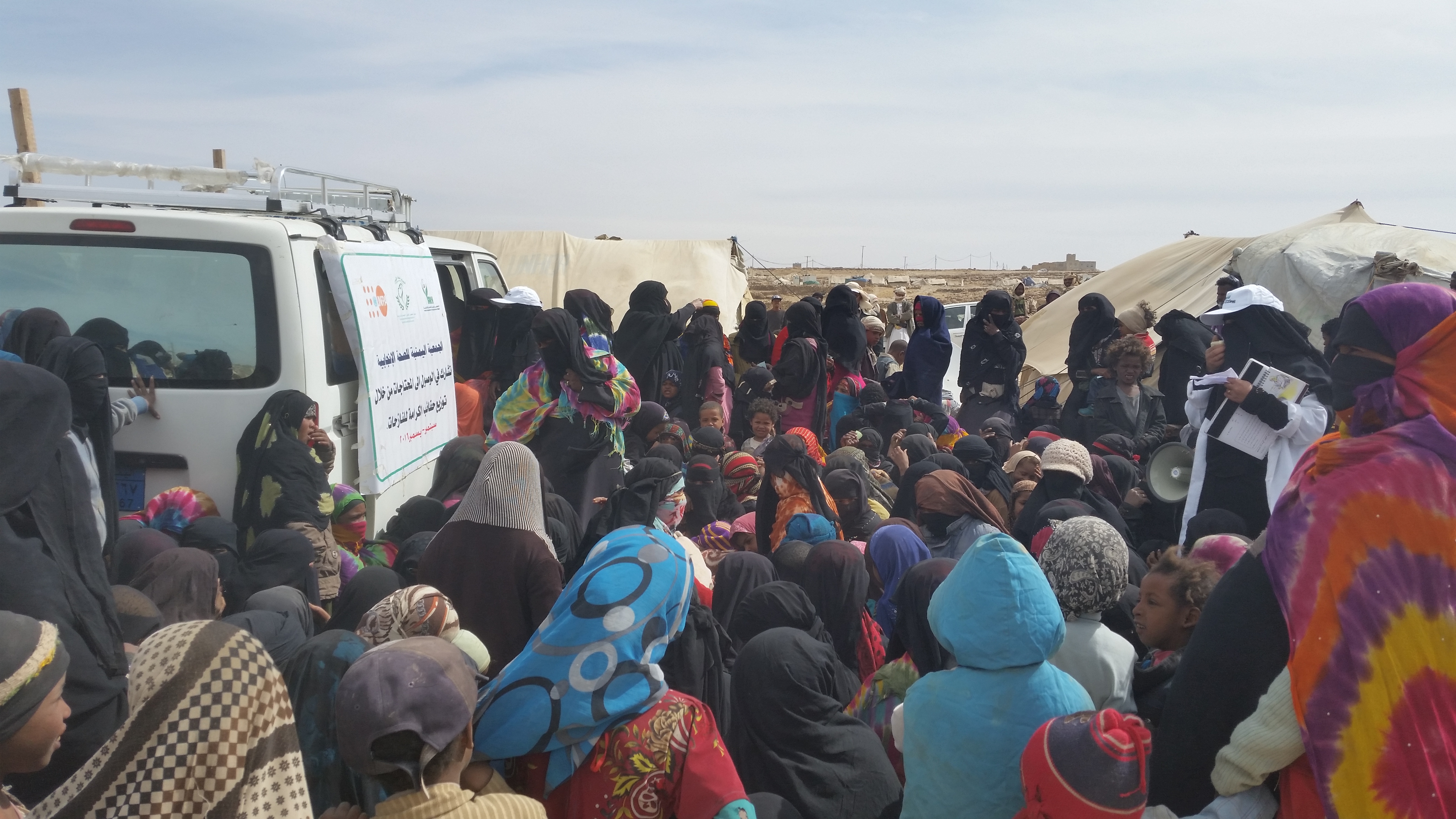
Humanitarian crises are not temporary, nor are sexual and reproductive health needs
Women and girls are disproportionately affected in humanitarian crises and face multiple sexual and reproductive health challenges in these contexts. IPPF has been providing much needed support to vulnerable communities through our global federation of member associations, who provide contextualised, timely and tailored interventions drawing on local partners' knowledge and expertise. However, recent shifts in the global political landscape are concerning and threaten to undermine IPPF's mission and impact on the ground. We live in a time when crises, whether brought on by human causes or natural disaster, have displaced more people than at any point since the Second World War. The needs of those driven from their homes are not transitory. Refugees now find themselves facing impermanent conditions for an average of 20 years. They must resort to living in temporary shelters or makeshift accommodation, and their refugee status often leaves them ineligible to access public healthcare and education. The UN reports there are more than 125 million people worldwide in need of humanitarian assistance. Of those, a quarter are women and girls between the ages of 15 and 49. And one in five of these women and girls is likely to be pregnant. A woman who has been forced to flee is particularly vulnerable. More than 60% of maternal deaths take place in humanitarian and fragile contexts, according to the UN Population Fund (UNFPA). At least half of these women’s lives could easily be saved. And yet women and girls affected by humanitarian crises face other risks too. A breakdown in civil order following disasters consistently increases the occurrence of sexual violence, exposure to sexually transmitted infections including HIV, and unintended pregnancies. After the 2015 cyclone in the Pacific Island nation of Vanuatu, a counselling centre recorded a 300% spike in gender-based violence referrals. Likewise, a study with Syrian refugee women displaced by conflict found that more than 50% experienced reproductive tract infections, almost a third had experienced gender-based violence, and the majority had not sought medical care. IPPF is at the forefront of delivering life-saving services. Our sexual and reproductive health program in crisis and post-crisis situations (SPRINT), established in 2007 and supported by the Australian Government, has ensured access to essential sexual and reproductive health services for women, men and children in times of crisis. Under the banner of our new IPPF Humanitarian division, the SPRINT initiative is now part of a global movement that seeks to provide all those affected by crises worldwide with dignity, protection and care. As a federation of 142 locally-owned but globally connected member associations, IPPF has a unique model for providing these vital humanitarian services. Our focus on valuing local solutions means our responses are rapid and sustainable. We see it as vital to be on the ground before, during, and after crises. Member associations work to mitigate against sexual and reproductive health (SRH) issues ahead of a crisis to reduce negative impacts, and remain afterward to assist communities to recover and rebuild their lives. When Cyclone Winston struck Fiji in February last year, IPPF’s local member association, the Reproductive and Family Health Association of Fiji (RFHAF), was already preparing to mobilise teams of volunteers and health staff. Initially, sexual and reproductive health was not prioritised at a national level, thus the first challenge was to convince the Government of Fiji and lead agencies of the critical importance of including sexual and reproductive health issues in the response. With support from IPPF and SPRINT personnel, RFHAF successfully advocated with the government to include reproductive health concerns into the post-cyclone needs assessment, and supported the Government in carrying this assessment out. Coordination and collaboration was critical as the damage was across an extensive area on several islands. Working in partnership with the Ministry of Health (MoH), UNFPA, Red Cross Society and local non-government agencies, RFHAF provided SRH care to remote areas identified as being worst hit by the cyclone. Colleagues from SPRINT and RFHAF split into three teams, moving into the field simultaneously to conduct 37 mobile medical missions to reach women and girls, with vulnerable pregnant women and new mothers prioritised. Comprehensive follow up beyond the initial response post-cyclone was a particular challenge for an organisation of just 11 staff. To address this, RFHAF leveraged their existing partnership with the MoH to facilitate training and handover of SRH service provision to district nurses and sub-divisional health centres, once these facilities were again operational. The response in Fiji utilised the Minimum Initial Service Package for Reproductive Health, which IPPF helped to pioneer. Commonly referred to as ‘the MISP’, the package is a series of priority life-saving interventions that IPPF seek to implement as soon as possible following a crisis.

Safe Abortion Action Fund in Uganda
Hosted by IPPF, the Safe Abortion Action Fund (SAAF) supports grassroots organisations to increase access to safe abortion among vulnerable populations, worldwide. These stories could have been different Safe abortion is heavily restricted in Uganda, yet gender inequality and sexual violence are widespread. Hosted by IPPF, the Safe Abortion Action Fund is helping vulnerable women to turn their lives around. People are learning about safe abortion and fewer girls are dying. Community attitudes have been transformed and social stigma has started to give way to human rights and understanding. VODA Educating their peers about unsafe abortion LADY MERMAID'S BUREAU A graduate in need turns to sex work VODA Tackling taboos about abortion LADY MERMAID'S BUREAU From garbage collector to sexual health counsellor VODA Working to stop unsafe abortion for school girls LADY MERMAID'S BUREAU Life-changing care for sex workers Two grassroots projects changing women's lives VODA (Volunteers for Development Assistance) is a transformational program, run by volunteers and students who help friends and peers in rural Uganda. Previously many young girls were dying from unsafe abortions, but now communities are rallying to provide support, information and access to contraception. Meet the young friends of VODA The LMB (Lady Mermaid's Bureau) provides much needed legal aid and healthcare to sexworkers in Uganda. Exposed to rape and sexual violence, these sexworkers are gaining their confidence through hard-to-access post-abortion care and the LMB support network - an invaluable help in itself for those without family. Meet the women helped by LMB
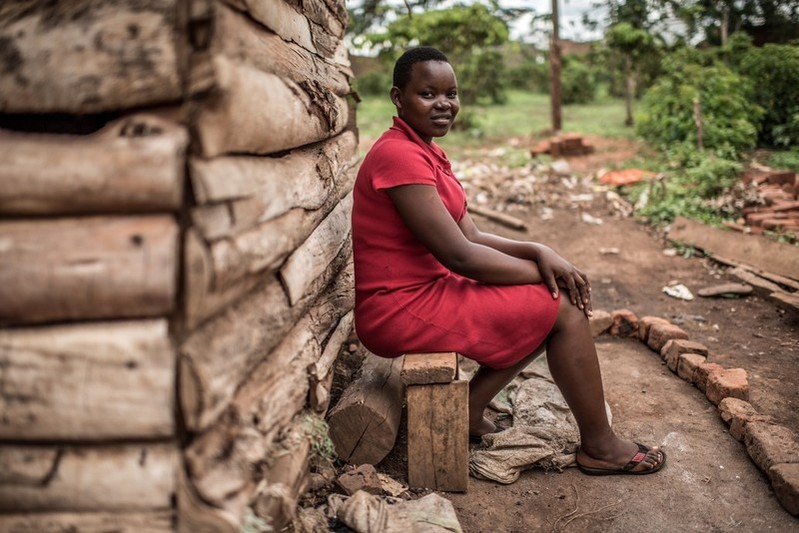
Global Gag Rule expansion will leave a fatal legacy for generations
The lives of millions of the world’s poorest women and girls are in jeopardy because of the expansion of the US Global Gag Rule (GGR), IPPF’s Director General has said. The expansion of the GGR (or Mexico City Policy) will deny critical health care to many of the poorest women on the planet, forcing millions of them into unplanned pregnancies, unsafe abortions and leading to thousands of deaths. Tewodros Melesse was speaking after the announcement of the policy expansion last night. It means that access to critical affordable, high quality integrated reproductive healthcare services like contraception, Zika information, maternal health, ante-natal care, reproductive cancers, and HIV prevention and treatment will be denied around the world. The policy will hit hardest the women living at the margins of society – the poorest, the most remote and those under 25. Leaving millions behind and forced into unintended pregnancy, ill health or death because the essential services they need have or are being shut down. Tewodros Melesse, Director General, said: “This expansion of the Global Gag Rule is unprecedented and the largest of its kind. Leaving behind the hardest to reach and often poorest of marginalised women and communities is the worst possible situation. This policy asks IPPF to stop providing support, counselling and services which are entirely legal in the countries where our members provide them and women depend on them. We cannot do that. The consequences are fatal and will span generations. We believe women should be able to decide what happens to their bodies, safely and legally. We cannot accept a demand which we know will only increase the number of women being forced into pregnancy or worse. “ IPPF estimates that the withdrawal in funding from the Federation will lead to an additional 20,000 maternal deaths, 4.8 million unintended pregnancies and 1.7 million unsafe abortions. The expanded policy also obstructs the potential health partnerships on the ground in developing countries where IPPF Member Associations work closely with other medical organizations for referrals and support of clients. This means that the very valuable space between medical providers and patients will be compromised as referrals options become limited and as valuable services are closed. USAID has been a proud supporter of family planning and public health programming for decades. The enormous expense on USAID to administer this kind of order, for what could be a limited time, means the very money allocated to what they have done best – saving lives will be hugely diminished in impact and effectiveness. International Planned Parenthood Federation will lose 100 M USD in critical funding. On behalf of their members, the Federation issued a statement in January explaining why they can't sign the Global Gag Rule. Subscribe to our updates!
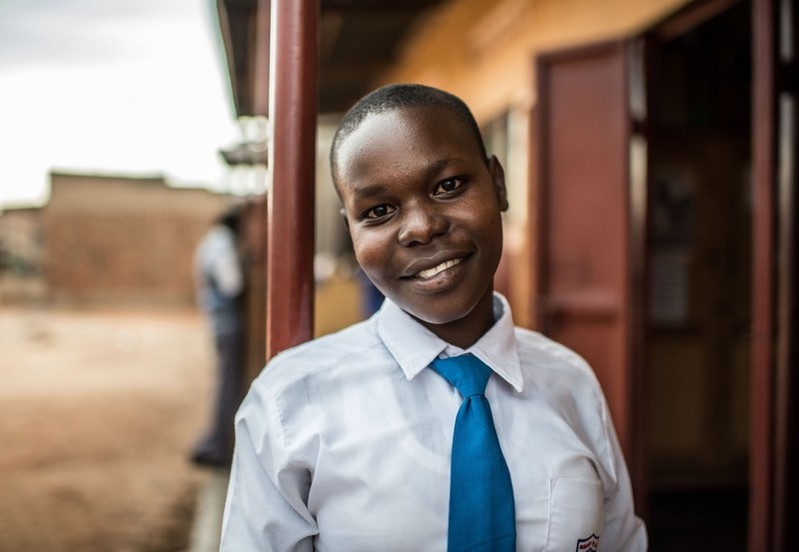
Saving lives in rural Uganda
The Safe Abortion Action Fund (SAAF) which is hosted by IPPF was set up in 2006 in order to support grass-roots organisations to increase access to safe abortion. One such organisation which received support under the last round of funding is called Volunteers for Development Association Uganda (VODA). When Noah Musoke was a young man his older sister had an unsafe abortion that nearly took her life. Luckily, his sister was able to tell him what had happened. He put her on his bicycle in rural Uganda and took her to the nearest health centre where she received post abortion care. Abortion was highly restricted in Uganda then and remains so today. The law and constitution are very unclear as to when an abortion is allowed and in practise it is almost impossible to receive a legal abortion in the country. It was because of these legal restrictions that Noah’s sister resorted to crude unsafe abortion which haunted her for life. “She never had a child. She lost many marriages; she lost many of them until she died. I think if there was a safer way to do this my sister would have had happier life” said Noah, one of the few Ugandan men advocating for access to safe abortion in Uganda. His experience led Noah to set up an inspirational organization called Volunteers for Development Association in Uganda (VODA Uganda) which, following a successful application to the Safe Abortion Action Fund (SAAF), in 2013 has been helping women and girls to avoid unwanted pregnancies and to access post abortion care. The SAAF funded project works with schools, communities and healthcare providers, training people to become community counsellors and referrers who are able to listen to young people, offer advice and refer them for services to well-trained local health providers. “People are conservative on some issues and one of very sensitive issues is sexual reproductive health and most especially abortion. Many people have very negative feelings about this yet it is a cause of maternal mortality in Uganda‚” Noah said. The 2016 Uganda Demographic Health Survey put teenage pregnancy at 25% from the 24% in the previous surveys. The increase means 1 in every 4 girls aged between 15-19 years in Uganda is either pregnant or already has a baby. It is for this reason that VODA Uganda’s project targets school girls in Kasawo and Namuganga sub counties located in Mukono district. “Here sex is assumed to be for married people and it is a private issue. Now when these young people, for various reasons, engage in sex, they get pregnant and they know they will miss school or their parents will be very harsh to them so they resort to unsafe abortion” he said. “And as a result, people resort to very crude methods in case she needs to have an abortion. They will resort to very unsafe methods which have always led to death and serious complications,” he adds. In the three years since VODA Uganda started their SAAF funded project they have been able to see some very positive results. They have changed perceptions about abortion in the community, bringing community leaders and health workers on board, explaining the problems of unsafe abortion and directing girls and women to post-abortion care services. Currently there are four health centres in the two sub counties that are offering post-abortion care, contraception and counselling to girls and women referred there by VODA Uganda school counselors as well as community volunteers. At a health facility in Namuganga, Anne* has just received post-abortion-care services from a midwife, Grace. The 14-year-old nearly died of post-abortion complications after her grandmother used local herbs to terminate her pregnancy. “A man just caught me — or raped or defiled me— when I had gone to visit my grandmother. After he had finished, he told me to go back home and never to tell anyone about it” she said. The midwife at the facility, Grace, said the cases of unsafe abortion especially among teenage girls are widespread. “Most of them do come here and the situation is very bad, when they are bleeding severely. We don’t have blood at the health centre so we just give first aid then we refer to the main hospital.” Grace explained. “They go to local herbalists and they give them some drugs. Some of them tell me that they give them emilandira (roots) which they insert inside there to rupture the membranes.” She added. Anne is lucky she did not die. With the successful post-abortion-care, she looks forward to returning to school next term. At the next health centre in Kasawo, Josephine, the midwife would never have thought of helping girls and women with abortion services before she was trained by VODA Uganda about the need to avert the deaths that were occurring in villages due to unsafe abortion. “I used to have negative attitude about it. Because according to my religion, it was not allowed in the church. But again when you look into it, it’s not good to leave someone to die. So I decided to change my attitude to help people.” revealed Josephine. Today, she is happy that fewer women and girls are dying because of unsafe abortion. “VODA people have helped us. We even provide the clients with family planning to avoid another pregnancy since their hormones are very sensitive” she added. In Namuganga and Kasawo, the approach of using school girls and a team of volunteers has worked in changing community perceptions about abortion as well as helping girls to access information about unwanted pregnancies. At Kakoge village, 35-year-old John Owoli is one of the VODA Uganda Community volunteers. He knows that his Catholic religion does not support abortion. However Owoli who is a catechist at a nearby church has used his position to preach against unsafe abortion. Asked why? He replied: “Just to save life. I attended two burials from unsafe abortions because they had used local drugs so I saw that it was a good thing to participate in saving people’s lives.” Owoli, a father of six said before he joined VODA Uganda, he had heard about family planning and unsafe abortion and he did not think they were big issues. “But after this training, I saw it was a serious issue. And I must be included in stopping it. Because if we stop this kind of dying, most especially the young ones, it means that development is coming to our community”. Most girls according to Owoli have changed their behaviours by using condoms, family planning, abstinence and now know about safe abortion. Owoli would like to see more health facilities constructed closer to the villages so that those referred for post-abortion care services don’t have to walk for seven kilometers to a health centre. *not her real name Stories Read more stories about the amazing success of SAAF in Uganda A mother's heart break after losing teen daughter to unsafe abortion A volunteer's special understanding of how safe abortion can save lives Religious leaders help tackle unsafe abortion Collaborating with public health providers Working to stop unsafe abortion for school girls Tackling taboos about abortion $(document).ready(function(){ $(".owl-carousel").owlCarousel({ items:3 }); });
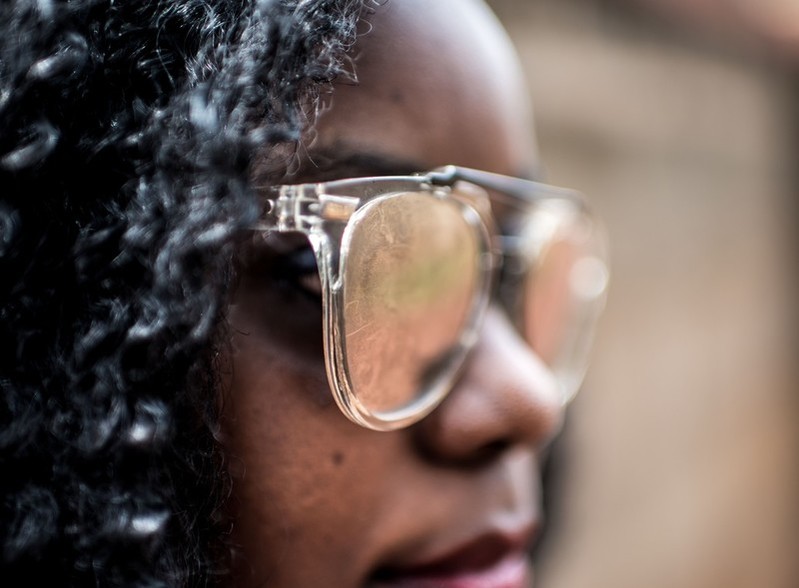
Providing access to safe abortion and sexual health services for sex workers
Many sex workers in Uganda end up having unwanted pregnancies often resorting to unsafe abortions. There are many myths and misconceptions about contraception as well as a lack of access. This issue was one of the reasons why Lady Mermaid's Bureau (LMB), a sex workers rights organisation from Kampala, decided to apply for a grant from the Safe Abortion Action Fund (SAAF) in 2013. Founded in 2002 by a group of former sex workers, the Lady Mermaid's Bureau, the first organization of its kind in the region, works to prevent and reduce unsafe abortions amongst sex workers in Uganda and campaigns to decriminalize abortion and sex work. The Safe Abortion Action Fund (SAAF) which is hosted by IPPF was set up in 2006 in order to support grass-roots organisations to increase access to safe abortion. Photography © IPPF/Tommy Trenchard
Pagination
- Previous page
- Page 12
- Next page







